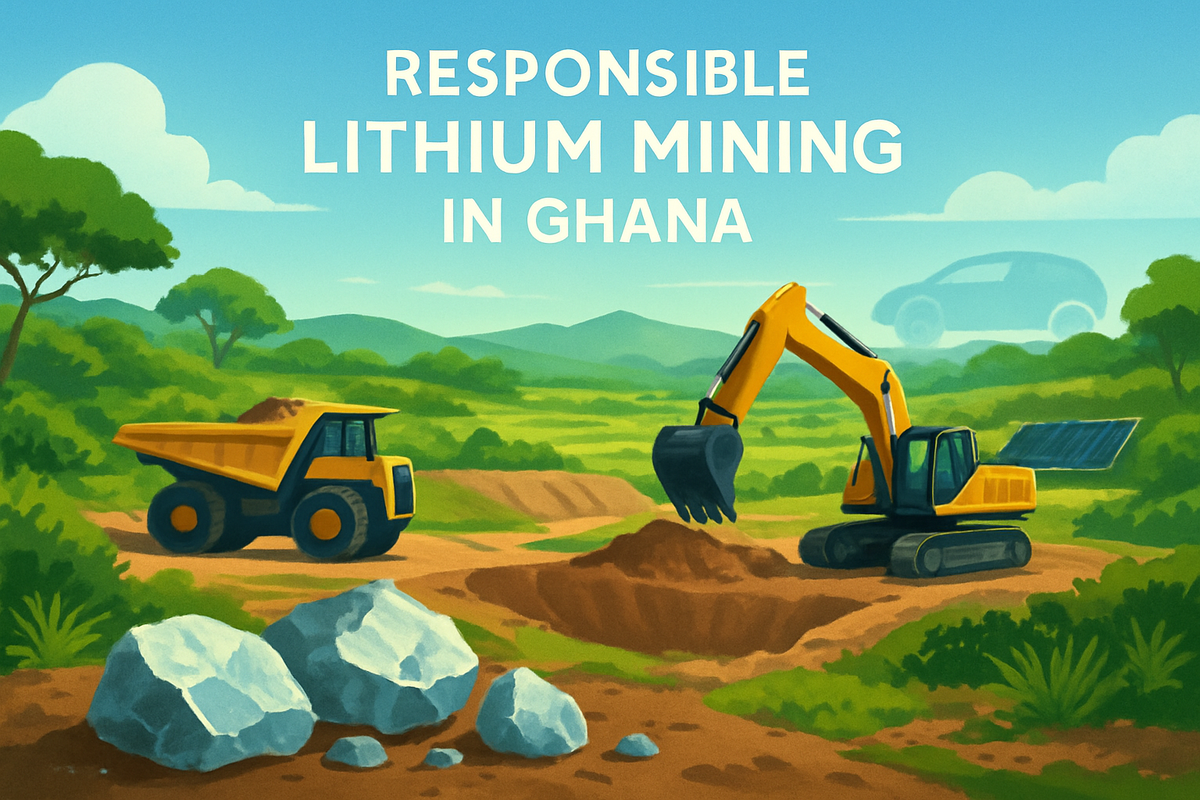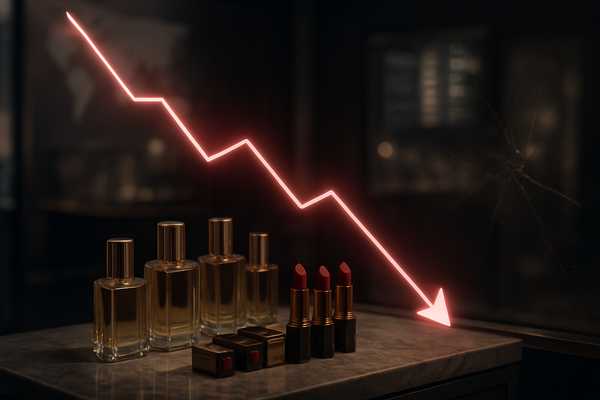Ghana's Ewoyaa Mining Lease Ratification Advances: A New Dawn for African Lithium Supply

Ghana's parliamentary ratification of the Ewoyaa Mining Lease is advancing in late 2025, marking a pivotal moment for the West African nation and the global supply of critical commodities, particularly lithium. While the immediate impact on global lithium supply will not be felt until actual production commences in the coming years, this development provides crucial regulatory certainty, allowing Atlantic Lithium (AIM: ALL, ASX: ALL, GSE: ALL) to progress its flagship Ewoyaa Lithium Project. This move is set to position Ghana as a significant, albeit future, player in the electric vehicle (EV) battery supply chain and signals a strategic diversification for Africa's mining sector.
The advancing ratification signals Ghana's firm commitment to its "Green Minerals Policy," aiming to maximize in-country value from critical minerals. This legislative milestone is essential for unlocking the next phases of development, including financing and construction, for what is projected to be one of the world's lowest-cost hard-rock spodumene concentrate producers.
Detailed Coverage: Navigating Legislative Hurdles and Market Shifts
The journey to parliamentary ratification for the Ewoyaa Mining Lease has been a protracted one, reflecting the complexities of balancing national interests with global market realities. Originally granted to Atlantic Lithium Limited in October 2023, the lease has undergone significant renegotiation due to a dramatic shift in global lithium prices. As of November 2025, the lease has been formally submitted to the Parliament of Ghana and referred to the Select Committee on Lands, Forestry, and Mines for review and recommendation, with final approval anticipated before the end of the year.
The timeline of events leading to this moment underscores the diligent, albeit sometimes challenging, process:
- October 20, 2023: Ghana’s Ministry of Lands and Natural Resources formally granted the initial Mining Lease for the Ewoyaa Lithium Project to Atlantic Lithium (through its Ghanaian subsidiary, Barari DV Ghana Limited).
- December 2024: Presidential elections in Ghana led to a new administration, prompting a review of the lease terms.
- Early-to-Mid 2025: Extensive renegotiations between Atlantic Lithium and the Ghanaian government occurred, primarily driven by a significant decline in global lithium prices.
- July 16, 2025: The Minister of Lands and Natural Resources confirmed Cabinet's authorization for the negotiation of revised lease terms.
- September 2024 & October 2024: The Environmental Protection Authority (EPA) Permit and Mine Operating Permit were secured, respectively.
- October 21, 2025: The current parliamentary session commenced, listing the Ewoyaa Mining Lease for consideration.
- November 4, 2025: Atlantic Lithium reportedly laid off over 100 workers due to ratification delays, reducing its workforce from 167 to 62.
- November 12, 2025: Atlantic Lithium confirmed the submission of the Mining Lease to Parliament and its referral to the Select Committee.
Key players and stakeholders involved in this landmark project include Atlantic Lithium (AIM: ALL, ASX: ALL, GSE: ALL) as the primary developer; the Ghanaian Government, including the Ministry of Lands and Natural Resources, Parliament, and the Minerals Commission; and the Minerals Income Investment Fund (MIIF), which holds a significant equity stake. Piedmont Lithium Inc. (NASDAQ: PLL) is a strategic partner, having committed US$70 million towards the project and holding an offtake agreement for 50% of Ewoyaa’s production. Local communities in the Ewoyaa area are also crucial stakeholders, supporting the project for job creation but expressing frustration over delays impacting land access and compensation. Civil society organizations, such as IMANI Africa, have actively scrutinized the lease terms, advocating for a more robust deal for Ghana.
Initial market reactions have been mixed. While Atlantic Lithium's CEO, Keith Muller, remains cautiously optimistic, viewing ratification as a "key catalyst," the prolonged delays have cast a shadow of uncertainty, leading to staff layoffs and concerns about Ghana's regulatory predictability. The drastic fall in global lithium prices since 2023 has been a driving force behind the renegotiations, with industry analysts acknowledging the necessity of revised fiscal terms to ensure the project's economic viability.
Companies Poised to Win or Lose from Ewoyaa's Advancement
The ratification of Ghana's Ewoyaa Mining Lease will have significant, albeit differentiated, impacts on the key corporate and governmental entities involved. The revised terms of the lease, coupled with the current state of the lithium market in November 2025, are critical determinants of these outcomes.
Atlantic Lithium (AIM: ALL, ASX: ALL, GSE: ALL) stands to gain immensely from parliamentary ratification. This approval is the final regulatory hurdle, unlocking crucial financing and offtake arrangements necessary for the project to proceed to a Final Investment Decision (FID), expected in Q3 2025. As Ghana's first lithium producer, Atlantic Lithium will secure a first-mover advantage in West Africa's emerging lithium sector. The strategic investment by Ghana's MIIF also de-risks the project financially and aligns the company with national interests. However, the renegotiated fiscal terms, which include a higher government take (10% royalty, 13% free-carried interest), will mean a reduction in the company's overall profitability compared to the original 2023 terms. The protracted delays have already led to staff layoffs and potential reputational damage.
Piedmont Lithium (NASDAQ: PLL), as a strategic partner, will benefit from the secured offtake agreement for 50% of Ewoyaa's spodumene concentrate production, vital for its Tennessee Lithium operations and its goal of becoming a major lithium hydroxide producer in North America. However, Piedmont's refusal to release its $70 million development capital commitment due to unmet conditions has created a public dispute with Atlantic Lithium, potentially leading to arbitration and further delays.
The Ghanaian Government and its Minerals Income Investment Fund (MIIF) are significant winners. The revised fiscal terms, including a 10% royalty rate, a 13% free-carried interest, and an additional 6% equity stake through the MIIF, ensure a substantially higher "government take" than previous mining agreements. The MIIF's $32.9 million investment is projected to yield substantial returns, including a Net Present Value (NPV) of $90 million on its local asset investment and significant royalties over the mine's life. The project is also expected to create approximately 500 direct jobs and thousands indirectly, contributing to economic development and positioning Ghana as a potential lithium hub in West Africa. The main challenge for the government is navigating political scrutiny over the adequacy of the revised terms and ensuring that prolonged delays do not deter future foreign investment.
For other mining companies in the region, the Ewoyaa lease sets a new precedent for critical mineral agreements in Ghana and potentially West Africa. This trend towards increased legislative oversight and a greater government take (higher royalty rates, free-carried interests, and active equity participation) could become standard for future projects. While this may translate to higher costs of entry or operation, it also emphasizes the need for robust Environmental, Social, and Governance (ESG) strategies and a focus on local value addition to gain social license and government approval.
Wider Significance: Ghana's Green Mineral Ambitions and Global Supply Chains
The ratification of Ghana's Ewoyaa Mining Lease is more than a singular project approval; it is a bellwether for Ghana's economic diversification, a significant player in the global critical minerals race, and a test of evolving resource management policies across Africa.
This project aligns perfectly with the global imperative to secure diverse and reliable sources of critical minerals, particularly lithium, which is foundational to the ongoing energy transition and the burgeoning electric vehicle (EV) market. Ewoyaa aims to diversify global lithium supply chains, reducing the current heavy concentration in Australia, Chile, and China. Notably, the project represents Africa's first major lithium venture without Chinese funding, bolstering US ambitions to develop its own battery-making industry and reduce reliance on China for critical minerals. This strategic partnership with Piedmont Lithium (NASDAQ: PLL) reflects a geopolitical dimension in the race for critical minerals.
The Ewoyaa project embodies Ghana's "Green Minerals Policy," which aims to diversify the country's mining sector, target critical battery materials, and promote responsible mining practices. The agreement's significantly higher government take, including a 10% royalty rate, a 13% free-carried interest, and an additional 6% equity participation through the MIIF, is touted as unprecedented, seeking to maximize national benefits. This emphasis on "value addition" with expectations for local processing and job creation mirrors a broader trend across Africa, where governments are shifting from raw material exports towards policies that promote beneficiation and industrial development, as seen in Zimbabwe's ban on raw lithium exports.
Historically, African nations have often entered mining agreements that were criticized for being rigid and unbalanced. The Ewoyaa deal, with its higher government stake and royalty rates, reflects a growing sentiment of "resource nationalism," where African governments seek greater control over their mineral wealth. Ghana's entry into lithium mining marks a significant departure from its 500-year reputation as a gold haven, signaling a strategic shift towards critical minerals. The commitment to Environmental, Social, and Governance (ESG) principles for Ewoyaa also represents a modern approach, contrasting with historical practices that often overlooked environmental protection and community welfare.
What Comes Next: Pathways to Production and Market Dynamics
The immediate future of Ghana's Ewoyaa Lithium Project hinges on the parliamentary ratification. Should the lease be approved, Atlantic Lithium (AIM: ALL, ASX: ALL, GSE: ALL) can swiftly move towards a Final Investment Decision (FID), expected shortly thereafter, potentially in Q3 2025. Construction is anticipated to commence within months of FID, with initial production targeted within 24 months, likely by late 2027 or 2028. This would firmly establish Ghana as a new source of lithium supply and Atlantic Lithium as a significant spodumene concentrate producer.
Strategic Pivots and Adaptations: Atlantic Lithium has already demonstrated adaptability by engaging in fiscal terms renegotiation with the Ghanaian government to ensure project viability amidst fluctuating lithium prices. The company is also exploring diverse funding and offtake arrangements beyond its initial partnership with Piedmont Lithium (NASDAQ: PLL). The Ghanaian government, for its part, must balance maximizing national benefits with maintaining an attractive investment climate, while also pragmatically pursuing its value addition strategy for local processing. The Minerals Income Investment Fund (MIIF) will be crucial in leveraging its equity and offtake rights to foster local industrialization.
Market Opportunities and Challenges: As of November 2025, the lithium market is experiencing a resurgence. Lithium carbonate futures are trading over CNY 83,000 per tonne, reflecting a recent upward trend after significant volatility. Global demand for lithium continues to be robust, driven primarily by electric vehicles (EVs) and increasingly by energy storage systems (ESS), with demand projected to rise over 20% annually. The long-term outlook for lithium demand is forecast to exceed supply by approximately 500,000 tonnes by 2030, presenting sustained market opportunities for Ewoyaa. However, the market remains volatile, and the evolution of battery chemistries and recycling advancements pose long-term challenges.
Potential Scenarios:
- Parliamentary Ratification (Most Likely): The project proceeds to FID, construction, and eventual production, establishing Ghana as a key lithium producer and diversifying its economy.
- Continued Delay/Non-Ratification: The project remains in limbo, potentially leading to further job losses, erosion of investor confidence, and Atlantic Lithium re-evaluating its commitment. Ghana would miss a crucial opportunity to enter the critical minerals supply chain.
Comprehensive Wrap-up: A New Chapter for Ghana and Global Lithium
The Ewoyaa Lithium Project stands as a testament to Ghana's ambition to diversify its economy and actively participate in the global clean energy transition. The imminent parliamentary ratification of the Ewoyaa Mining Lease is not merely a procedural step but a defining moment that will shape Ghana's economic future and contribute significantly to the evolving landscape of global critical mineral supply.
Key Takeaways: The project is set to inject a new, substantial source of lithium into the global market, backed by robust economics and strategic partnerships. Ghana has secured a significant "government take" through equity and royalties, reflecting a broader trend of resource nationalism in Africa. However, the path to this point has highlighted challenges in navigating volatile commodity markets, ensuring fair community engagement, and managing political scrutiny.
Market Assessment Moving Forward: While lithium prices have shown a recent recovery in November 2025, the market remains dynamic. The long-term demand for lithium, fueled by EVs and ESS, is projected to remain strong, but supply growth from new projects like Ewoyaa will be critical in meeting this demand. Ghana's ability to bring Ewoyaa online efficiently will be crucial for capitalizing on this market window.
Significance and Lasting Impact: Ewoyaa will establish a precedent for future critical mineral investments in Ghana and potentially across West Africa. It aims to foster local content development, create jobs, and contribute to Ghana's economic diversification, moving beyond its historical reliance on gold. The project's success will be a case study in how African nations can leverage their mineral wealth for sustainable development while navigating geopolitical and market complexities.
What Investors Should Watch For: In the coming months, investors should closely monitor the final outcome and specific terms of the parliamentary ratification. Following approval, attention will shift to the finalization of funding packages, offtake agreements, and clear timelines for construction commencement and initial production. Tracking global lithium price trajectories, the broader African lithium landscape, and Atlantic Lithium's ongoing commitment to ESG principles and community engagement will also be vital for assessing the project's long-term stability and profitability.
This content is intended for informational purposes only and is not financial advice



